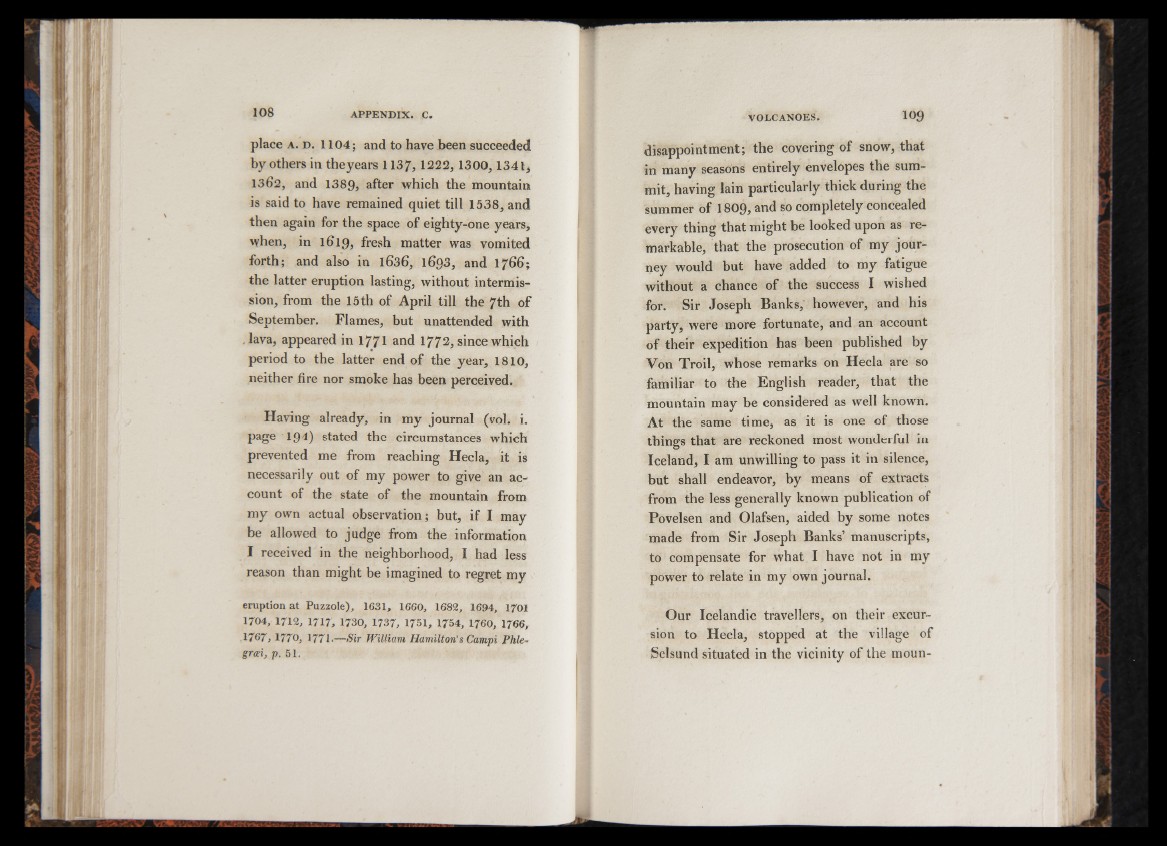
place a . d . 1104; and to have been succeeded
by others in theyears 1137,1222, 1300,134 lt
1362, and 1389, after which the mountain
is said to have remained quiet till 1538, and
then again for the space of eighty-one years,
when, in 1619, fresh matter was vomited
forth; and also in 1636, 1693, and 1766;
the latter eruption lasting, without intermission,
from the 15 th of April till the 7th of
September. Flames, but unattended with
lava, appeared in 1771 and 1772, since which
period to the latter end of the year, 1810,
neither fire nor smoke has been perceived.
Having already, in my journal (vol. i.
page 194) stated the circumstances which
prevented me from reaching Hecla, it is
necessarily out of my power to give an account
of the state of the mountain from
my own actual observation; but, if I may
be allowed to judge from the information
I received in the neighborhood, I had less
reason than might be imagined to regret my
eruption at Puzzole), 1631, 1660, 1682, 1694, 1 7 0 1
1704, 1712, 1717, 1730, 1737, 1751, 1754, 1760, 1766,
1767, 1 7 7 0 , 1771.—Sir William Hamilton's Campi Phledisappointment;
the covering of snow, that
in many seasons entirely envelopes the summit,
having lain particularly thick during the
summer of I8O9, and so completely concealed
every thing that might be looked upon as remarkable,
that the prosecution of my journey
would but have added to my fatigue
without a chance of the success I wished
for. Sir Joseph Banks, however, and his
party, were more fortunate, and an account
of their expedition has been published by
Von Troil, whose remarks on Hecla are so
familiar to the English reader, that the
mountain may be considered as well known.
At the same time, as it is one of those
things that are reckoned most wonderful in
Iceland, I am unwilling to pass it in silence,
but shall endeavor, by means of extracts
from the less generally known publication of
Povelsen and Olafsen, aided by some notes
made from Sir Joseph Banks’ manuscripts,
to compensate for what I have not in my
power to relate in my own journal.
Our Icelandic travellers, on their excursion
to Hecla, stopped at the village of
Selsund situated in the vicinity of the moun